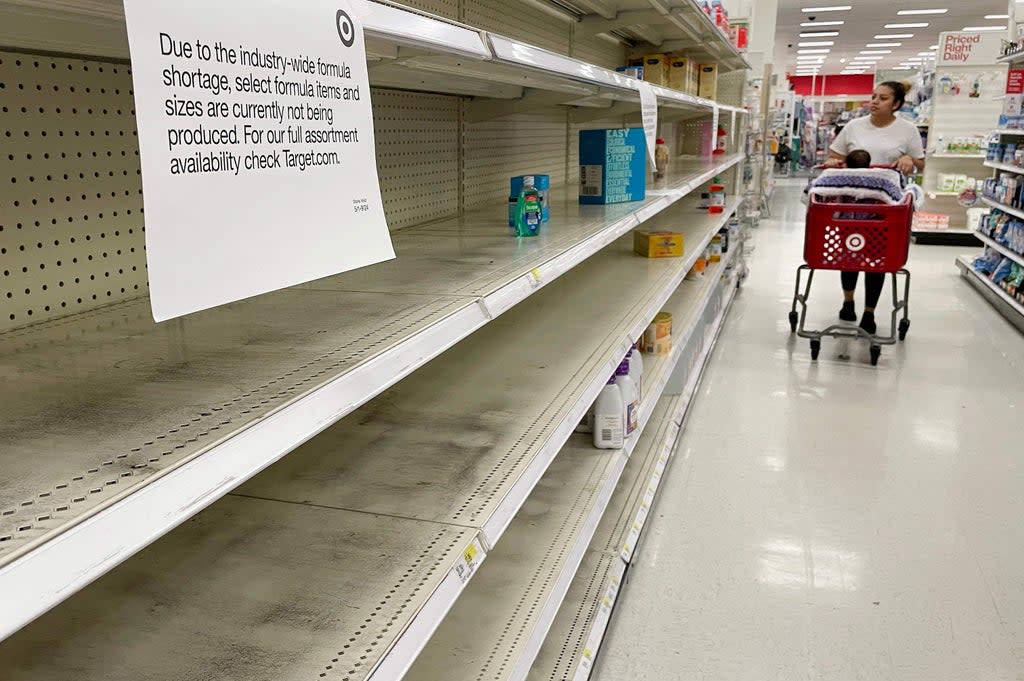Voices: I’m trying to hunt down baby formula during a severe shortage. It’s exhausting and scary

Standing at the kitchen counter looking at several purple-coloured boxes of Enfamil formula, I’m doing some basic maths. How long can we feed our five-month-old son on the baby formula we actually have in the house?
Fourteen days. That’s it.
While Callum’s mother, who works full-time, is ramping up her pumping to supplement the formula with as much breastmilk as possible, the boy likes to eat and at this stage significantly outpaces that production.
Last week, it became clear that parents with infants who rely on formula had a major problem on their hands. And standing in the baby food aisle at a Los Angeles Target store, with stripped-empty shelves staring back at me sadly, the reality of the situation did indeed bite.
A tired-looking woman next to me looked up, exhaled and said with frustration, “On to the next one.” But if her experience was anything like mine, the next one was no different. Nor the one after that.
We now have friends and family scouring supermarkets and pharmacies in Virginia, California, Nevada, Wyoming, Texas, Tennessee and Kentucky on our behalf. But the situation wherever you look is largely the same, with very little baby formula to be found.
Friends across the city are now swapping scavenged “Not for Retail Sale” boxes of formula handed out by pediatricians and stored at the back of cupboards for a rainy day. It’s raining.
Online stores show available product, take the order, then dash hopes when they cancel it several hours later as the system updates.
We are where we are in part because of the shuttering of the Abbott Nutrition plant in Michigan in February after it recalled products because of complaints of bacterial infections. Prior to the recall Abbott, Reckitt Benckiser, Nestlé and Perrigo — just four companies — controlled around 90 per cent of the US baby formula market. This cannot surely make any sense.
The Biden administration says it is taking action, with the Food and Drug Administration adding that it would not object to the importation of certain foreign-made infant formula. Meanwhile, Abbott says that it will have its plant up and running again within two weeks, with product back on shelves in six to eight weeks’ time.
We are a fortunate family, with resources and a wide network to help us through a challenging time. Not everyone is so lucky.
For parents across the country struggling to feed their children — especially mothers who are already worried about their milk supply or who can’t produce enough breastmilk — this is a life-changing burden.
It is going to be a long and stressful few months.

